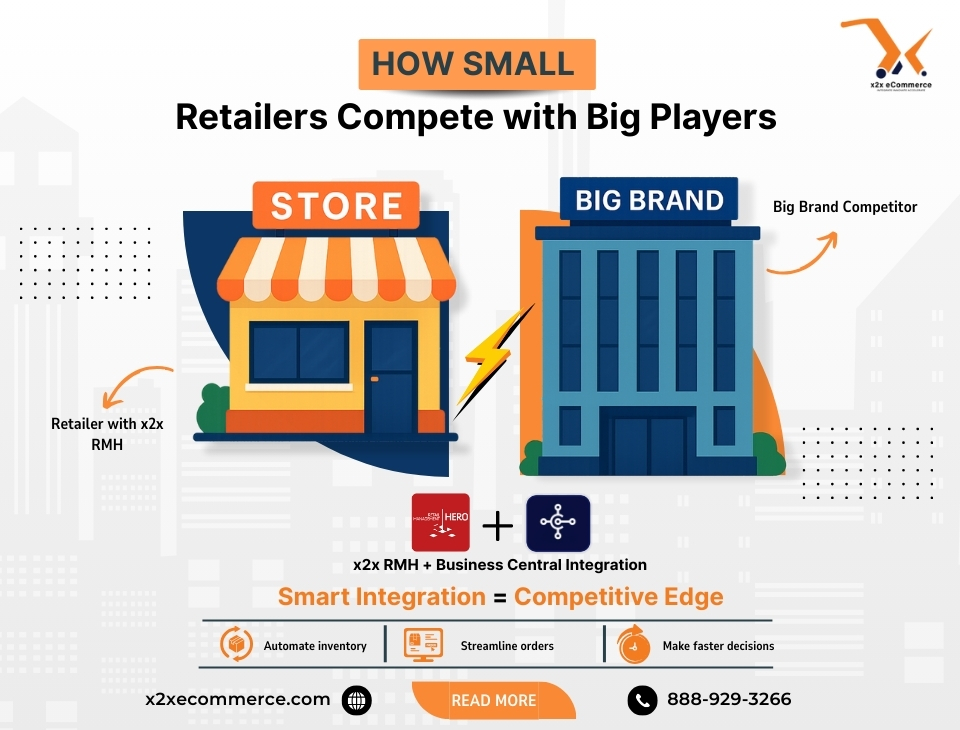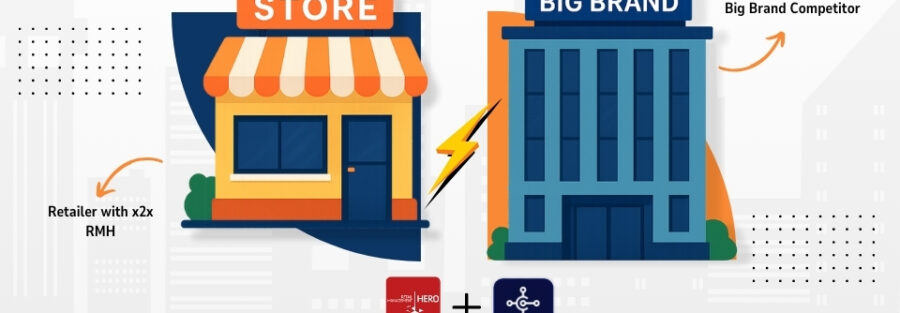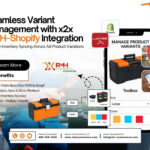
In the current retail environment, small retailers are frequently set against retail giants who seem to have resources that have no end when called upon. But with the proper tools and methodology in place, small retailers are not only able to stay afloat but thrive. A dynamic combination that does just that is utilizing Retail Management Hero (RMH) in conjunction with Microsoft Dynamics 365 Business Central. This combination gives independent retailers the capabilities to simplify operations, make smarter decisions, and provide superior customer experiences, all at a fraction of the overhead expense of big-box stores.
Mastering the Tools
RMH and Business Central together create a robust, value-for-money retail tech stack.
1. Unified Data = Smarter Decisions
Large retailers have back-office systems that provide them with a 360-degree view of their business. Small retailers can get onto the same playing field by combining RMH with Business Central. Combining RMH with Business Central maintains sales, inventory, finances, and customer information in effortless flow between the back office and the store.
Advantages:
- Real-time stock information
- Accuracy of financial reports
- Improved forecasting of demand
- Avoidance of manual errors while entering data
2. Lean Operations Without Sacrificing Functionality
Small companies can’t accommodate big back-office staff. RMH + Business Central automates the heavy work:
- Automate sales sync from RMH to BC
- Automatically generate purchase orders based on inventory levels
- Simplify reconciliations and tax reporting
Leaving lean teams to thrive and spend less time on back-office tasks and more on customer service and selling.
3. Personalized Customer Experiences
One of the most powerful strengths small retailers possess over their large counterparts is the ability to establish one-on-one relationships with customers. RMH supports this with features such as:
- Customer profiles
- Loyalty programs
- Purchase history tracking
Coupled with Business Central’s CRM and analytics features, small retailers can personalize offers, forecast customer demand, and offer engaging in-store and online experiences.
4. Scalability Without Disruption
As a company expands, its systems must adapt to keep up. RMH + Business Central offers small retailers the scalability they require:
- Grow to additional stores or registers without beginning anew
- Grow to eCommerce with unified platforms
- Facilitate multi-location operations with centralized management
This allows retailers to expand organically without needing to re-platform their entire technology stack every time.
5. Competitive Pricing and ROI
In contrast to big-enterprise retail software that comes with burdensome licensing and support fees, RMH and Business Central have low-cost, flexible pricing strategies. To the small retailer, this translates into:
- Lower total cost of ownership
- Faster implementation times
- Increased return on investment
Conclusion
The retail game is changing, and big or small hinges on how smart you are with your tools rather than your budget size. RMH and Microsoft Dynamics 365 Business Central set small retailers on par with the big retailers, helping them leverage their technology muscle to come to market to compete, innovate, and grow.
By applying intelligent, integrated systems, small retailers are not only capable of catching up but also of leading.



